CLICK HERE!
What do we study in Media at Ridgeway?
Why do we study Media Studies?
Studying Media Studies gives students the opportunity to delve deeper into how the media industry works, who they target and represent and why. The Media Studies curriculum is aiming to help students to evaluate the media around them and allow them to gain an appreciation of how and why media works in the way that it does. We aim to study media using real life, up to date case studies and applying the theories that we learn to those case studies (for example, a range of different types of Media – like social media, films, TV programmes and radio). By studying social media and its uses this will allow students to feel equipped when dealing with the social and mental difficulties and opportunities that social media and a digital world can bring. We also interweave practical tasks which allow students to take the theory and develop their own forms of media with more of an awareness embedded in their practice. Media Studies involves written exams and non-exam assessment (where students can create their own media products).
The Media Studies curriculum is designed to develop creative, technical, practical and academic skills needed to study at KS4 and beyond and to equip them in an increasingly Media central world. The curriculum is built to study key real-world case studies within the Media ranging from the 1950’s to current day with theory and academic research embedded throughout. Throughout the course they also explore historical, social and cultural contexts such as political issues and trends.
Media Studies programme of study at Key Stage 4 (Years 10-11)
The curriculum is built to study key real-world case studies within the Media ranging from the 1950’s to current day with theory and academic research embedded throughout. Throughout the course they also explore historical, social and cultural contexts such as political issues and trends. A lot of this groundwork is covered in Year 10 so that Year 11 focuses mainly on completing their own practical product (their NEA) which can be used in a portfolio moving beyond school and exam technique/practice. The practical skills that students have the opportunity to explore and grow allow students to socially engage by working in teams, academic develop through theory practice and mentally prepare for an ever evolving and technologically advancing world.
Homework expectations
Homework is a vital part of Media Studies to help expand and embed key Media skills and knowledge. Homework will be set for Years 10 and 11 every two weeks. This will range from research tasks, flipped learning (using clips and videos to enhance their understanding), projects, quizzes and preparation for assessment.
How can parents and guardians support at home?
Accessing different forms of the media at home is very useful when studying Media Studies, for example, reading newspapers, watching the news, watching a mixture of blockbuster and independent films and looking at different forms of advertising. Seneca is an excellent revision site for Year 11 and Canva is a great, free website which allows students to practice their editing skills for their NEA work.
Enrichment opportunities
Students will get the chance to speak to external speakers who work in the media currently in areas such as Radio and PR. Students will also get the chance to go on trips such as Harry Potter World and The London Film Museum. We have previously run a school magazine which is an option for students who are interested in getting involved.

